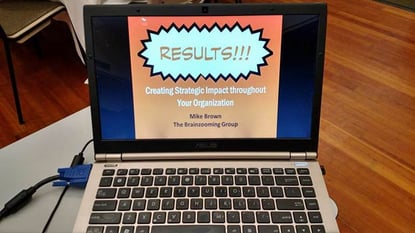I'm a big advocate for the strategy of asking great questions to understand points of view before you launch into something. It's better to get as much info as possible at the start so you can do something once instead of having to change direction repeatedly because nobody knows what the real direction is.
Having said that, here are two situations where it's better to act first and ask questions later:
- When you get ambiguous direction from a boss or client who is inaccessible - mentally, physically, or virtually. In these instances, take what you do know, and get started (or keep moving). Often the best thing you can do is help fill in and shape the thinking that either isn't taking place or isn't available from your boss/client.
- When there's been lots of discussion and not much progress on resolution. Within group settings, it's not unusual for certain issues to bog a team down right from the start. They're usually difficult, complicated issues that you'd ideally like to solve in one move, but you realistically know you can't. Instead, stop the discussion and questions; simply start doing something small. Creating even minor progress gives people something to react to rather than simply speculating what might be over and over.
In both cases, having something concrete (an artifact) for others to look at and consider can catalyze your efforts in a way that trying to get every question answered before you begin won't. - Mike Brown



